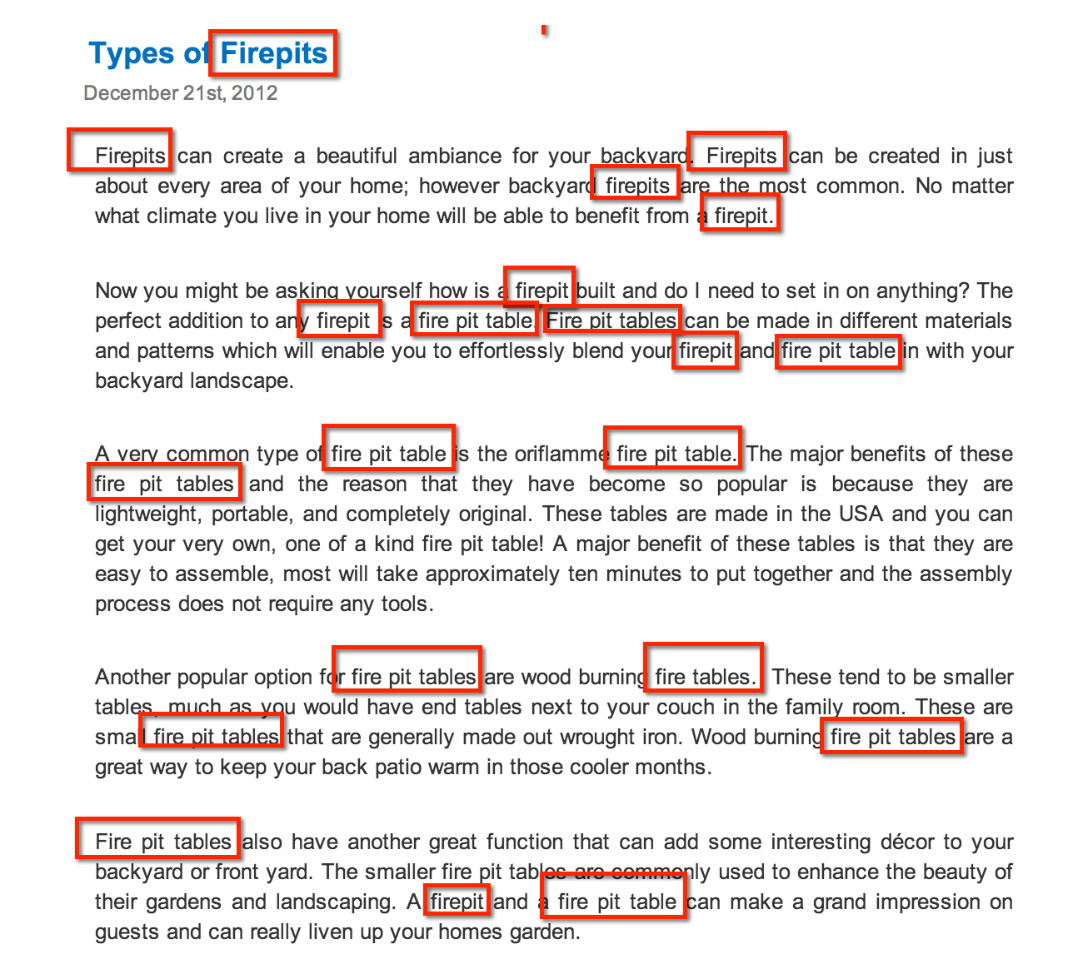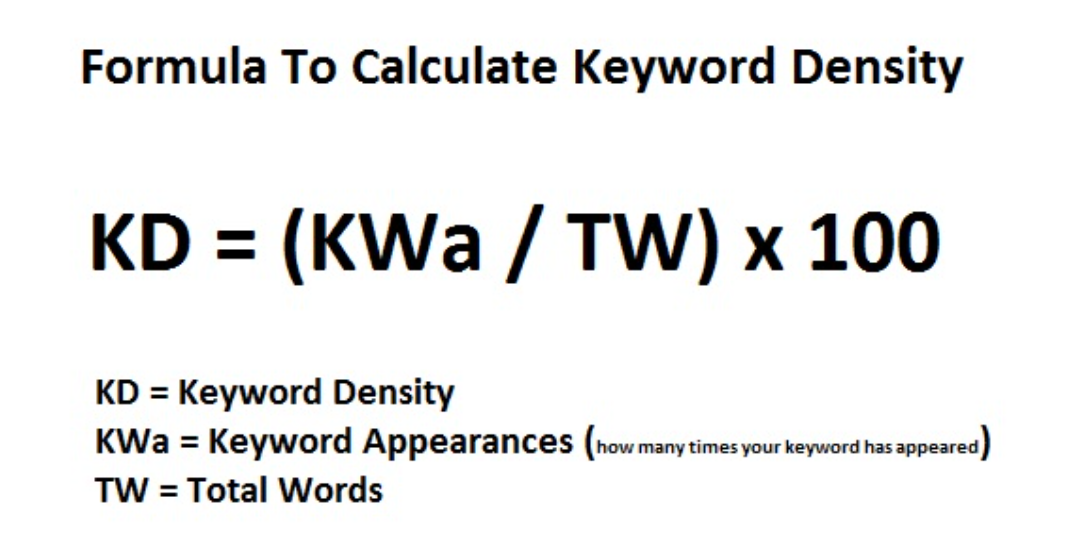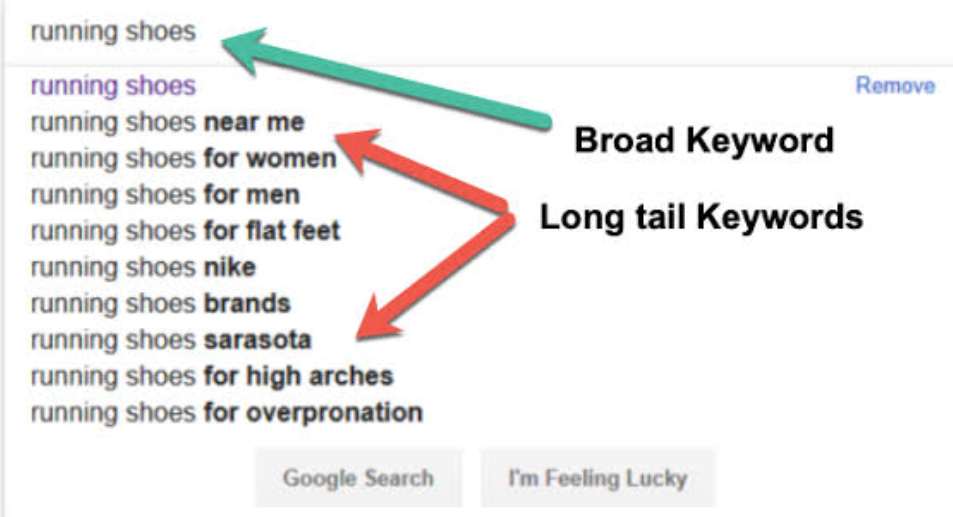Naman Modi
Naman Modi is a Professional Blogger, SEO Expert & Guest blogger at ebuilderz.com, He is an Award Winning Freelancer & Web Entrepreneur helping new entrepreneur’s launches their first successful online business
SEO is a damn valuable free marketing tool, but it’s not as easy as one would expect. To newbies, it’s the most...

SEO is a damn valuable free marketing tool, but it’s not as easy as one would expect. To newbies, it’s the most complex strategy to comprehend. But incorporating SEO services in your writing will help you to avoid the mistake of repeating your keyword. As you work on your content, you will realize how crucial keywords fit in. Keyword stuffing is a grave mistake that makes your work look spammy. Google doesn’t like to see this, and they might penalize your site if they see them there.
If you are making this SEO mistake or know someone who is doing it, you might think differently after reading this article. And please pass the word or share to those who you think will benefit from it; We will start by first understanding this act;

For starters, keywords are an integral part of SEO that is crucial to add to your content. You will need to include them in your titles, headers, meta descriptions, and body content. However, there’s a good ratio of using them. If you overuse the keyword, that’s how you get to “keyword stuffing,” as shown above. As crucial as keywords are, maintaining a healthy ratio is highly required.

Google looks at keyword stuffing as a way to manipulate your site’s ranking in its search results. And you can quickly tell what they are because they don’t sound natural. They usually appear in a group or don’t fit in a context. This practice can impact your ranking, exercise caution when using them, and focus on rich content that will have a decent flow of keywords.
Any method used by people to manipulate Google’s ranking is a black hat. According to Hubspot, this practice is a black hat because the motive is to influence the search engine. Rather than doing this, it’s better to hire SEO services and stick to safer techniques like the white hat.
Using a keyword on the same background color was one of the cunning methods used to manipulate the search engine. By sneaking the page’s code, a user may not see, but the crawlers can. These are tricks they got away with, back then. Today this cannot work as the engines have gotten better and smarter. Please avoid this method that will only get you in trouble.
The keyword density will be the several times your keywords appear in the content, divided by your content’s total words. It is advisable to work within a 2-3 percent or less keyword density. And the formula may look something like this.

Although some people still ignore keyword stuffing, they might be experiencing old behavior. Before, they could clutter and stuff as many keywords and quickly get away with it. The search engines have gotten better with time. If caught doing this today, you will get penalized. Google updated its algorithm to see those carrying this act. Don’t get your site in trouble by trying to manipulate ranking with this deceitful strategy.
By placing the keyword in the right place, you will be avoiding stuffing. The tactic is known as keyword optimization, which will help your page rank for the intended words. Sometimes you might overlook or miss this strategy even after going through a checklist. After you publish your page, it is advisable to run a report to check on-page SEO and review. It will ensure you are not missing any chance of optimization. A great tip is to use your keyword once in the following page elements;
Remember, your primary keyword should be relevant to your content. And it is also good to use a less competitive keyword, so you can increase the chance of ranking on search pages. When you use your target keyword per webpage, it keeps your pages from competing against each other. It also informs the search engines of what each page entails without conflict. If that sounds overwhelming, you can use SEO services.
Using words similar to the keywords can be a better alternative than being repetitive and avoid stuffing words. Even Google encourages this. Several tools can help you find synonyms. Please make use of them.

As the phrase reads, these are more than one or two keywords. They are more specific and tell more about the product or service. They have more impact on customer’s attention and create a call of action. You can search for the appropriate phrases with Google Keyword Planner, and you can also filter them to match your choice. Select a group of words with low competition, but have a high search volume. When you do this, you will eliminate keyword stuffing, since you won’t feel the need to repeat the words like a single keyword.
These are words that naturally relate to a title. Using them, you will be letting the search engine know that the keywords connect to your main topic. It’s almost impossible to avoid using a higher keyword density here as you discuss the specific subject. The solution is to alert the search engines on the reason you are doing this. And if you also use the LSI keywords properly, the crawlers will get them and see them as semantically related to your topic.
Although there is no consent on the right words to use in an article, the longer, the better, even Google looks at that as informative content. And if you imagine it, when you have a longer write-up, you get an opportunity to spread your keywords around naturally.

If you feel like it’s a challenge to avoid stuffing words, why don’t you focus on your audience when writing? If you do, you won’t do it. Most of the time, word stuffing doesn’t make much sense. They sound so unnatural and are not user-friendly. Always review your content and see if it has a smooth flow and comprehensibility. Google also appreciates content written for human readers and gets a higher chance of showing in SERPs.
In case you forgot this, your writing centers around your users. If you somehow manage to get to the SERPs, people can open it but bounce back after looking at your stuffed text. It is a total turn-off and repellent content. In simpler words, keyword stuffing creates a terrible user experience. Anything that does not impress the user affects not only your business but also your ranking.

No one wants to get a penalty for having spammy content. Whether you do it intentionally or not, you will have to pay for this misstep. If your site is not banned, your ranking will go down. And when you do, you will lose an opportunity to be discoverable by your users. That is something that will affect your business, not to mention a high bounce rate. When your website experiences all these, that means you cannot deliver quality to your audience.
do you see how tragic keyword stuffing can be? Refrain entirely from doing it. And when you do (which you should), you earn a higher ranking on the search engine as you offer a great user experience—reaching out for SEO services will show you how to write your content conversationally, avoiding keyword stuffing.
Suggested:
How to prepare your website with the help of SEO?